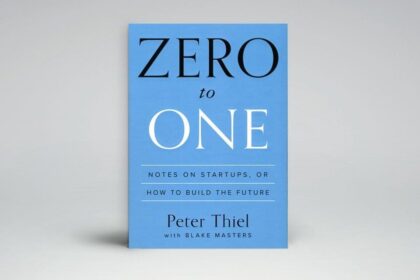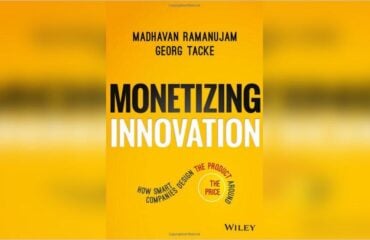
In today’s fast-paced startup world, where every entrepreneur is racing to innovate, it’s easy to fall into the trap of merely improving existing ideas rather than creating something entirely new.
This is where Peter Thiel’s book, Zero to One, comes into play. As startup founders grapple with fierce competition and the pressure to stand out, Zero to One offers a fresh perspective: rather than striving to be the best in a crowded field, why not create a new one entirely?
Book Overview
Zero to One is more than just a business book; it’s a manifesto for anyone looking to build a startup that changes the world. Peter Thiel, a co-founder of PayPal and an early investor in Facebook, distills his experiences and insights into this essential guide for entrepreneurs. Co-written with Blake Masters, Zero to One challenges conventional wisdom, urging founders to think big and aim for revolutionary change rather than incremental progress.
The book’s primary focus is on the concept of creating something truly unique—taking a company from zero to one—rather than merely adding another product or service to an already saturated market. Thiel emphasizes the importance of monopoly in business, arguing that competition is for losers and that the real success comes from building a product so superior that it stands alone in its category.
Key Lessons
– Monopolies Are Good: Thiel controversially argues that monopolies drive progress. A successful startup should aim to dominate a niche market before expanding.
– Think for Yourself: Founders should question popular beliefs and trends. Innovative ideas often come from questioning what others take for granted.
– The Power of Secrets: Thiel suggests that the world is full of secrets—undiscovered truths that, if uncovered, can lead to groundbreaking businesses.
– The Importance of Founders: Strong leadership with a clear vision is crucial. Thiel believes that a company’s success is often tied directly to its founders’ ability to drive the business forward.
Quotes
– “Every moment in business happens only once. The next Bill Gates will not build an operating system. The next Larry Page or Sergey Brin won’t make a search engine. And the next Mark Zuckerberg won’t create a social network. If you are copying these guys, you aren’t learning from them.”
– “A startup is the largest group of people you can convince of a plan to build a different future.”
Practical Applications
– Monopoly Strategy: Early-stage startups should identify a small market they can dominate, then scale up as they achieve success. For instance, if you’re building a tech product, start by solving a specific problem for a niche audience before trying to capture the mass market.
– Questioning Assumptions: Entrepreneurs should constantly challenge the status quo. Before jumping into a trend, consider whether it’s truly the best path forward or just the most obvious. This approach can lead to more innovative solutions.
– Secrecy and Innovation: Embrace the unknown by searching for “secrets” in your industry—areas that others have overlooked or misunderstood. This could be the foundation of a breakthrough product or service.
Strengths
One of the greatest strengths of Zero to One is its ability to provoke thought and inspire new ways of thinking about entrepreneurship. Founders appreciate Thiel’s emphasis on original thinking and the importance of creating something truly unique. The book provides actionable insights that are both strategic and practical, making it a valuable resource for anyone at the early stages of their startup journey.
Another strength is the book’s readability. Thiel and Masters present complex ideas in a clear and concise manner, making the book accessible to both seasoned entrepreneurs and those new to the startup world.
Weaknesses
However, some founders have critiqued *Zero to One* for its overly idealistic view of entrepreneurship. The book’s focus on creating monopolies and questioning established norms might seem impractical for those operating in highly competitive and fast-moving industries. Additionally, Thiel’s examples are often drawn from the tech sector, which may not be directly applicable to startups in other fields.
Some readers also feel that the book’s ideas, while compelling, can be difficult to implement, particularly for founders who lack the resources or market positioning to create a monopoly.
Questions for You
– What are the most significant assumptions in your current business idea that need validation?
Reflect on your business model and identify any assumptions you’re making that could benefit from a more critical examination.
– Which type of experiment or strategy mentioned in the book would be most suitable for your business model, and why?
Consider how Thiel’s concept of “going from zero to one” could be applied to your startup.
– How can you create a monopoly within your niche?
Think about the unique value your product or service offers and how you can position your business to dominate a specific market segment.
Join Our Founder Network
Are you ready to take your startup from zero to one? Join our Founder Network today and connect with like-minded entrepreneurs who are on the same journey. By becoming a part of our community, you’ll gain access to exclusive resources, expert guidance, and a platform to share your experiences and learn from others. Together, we can build the future—one innovative startup at a time.
Zero to One offers invaluable insights for startup founders looking to make a real impact. By applying the lessons from this book and engaging with our network, you’ll be well on your way to creating something truly extraordinary.



